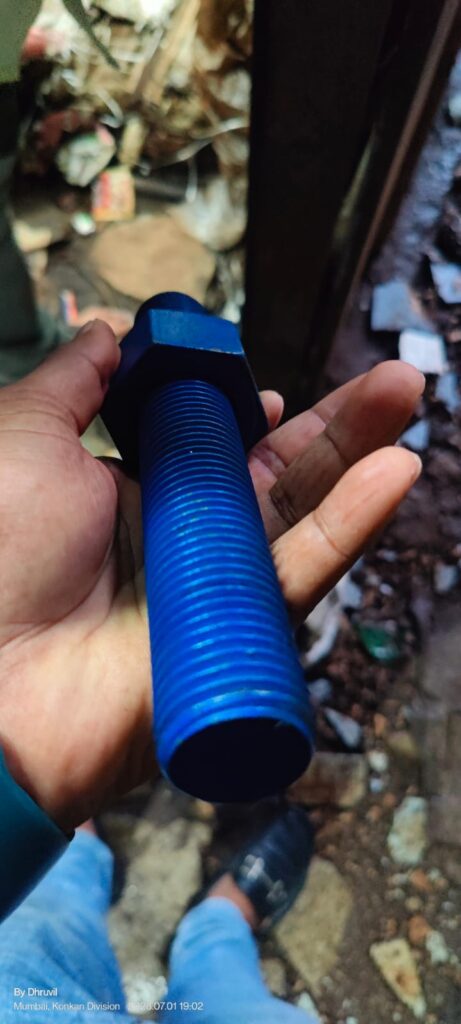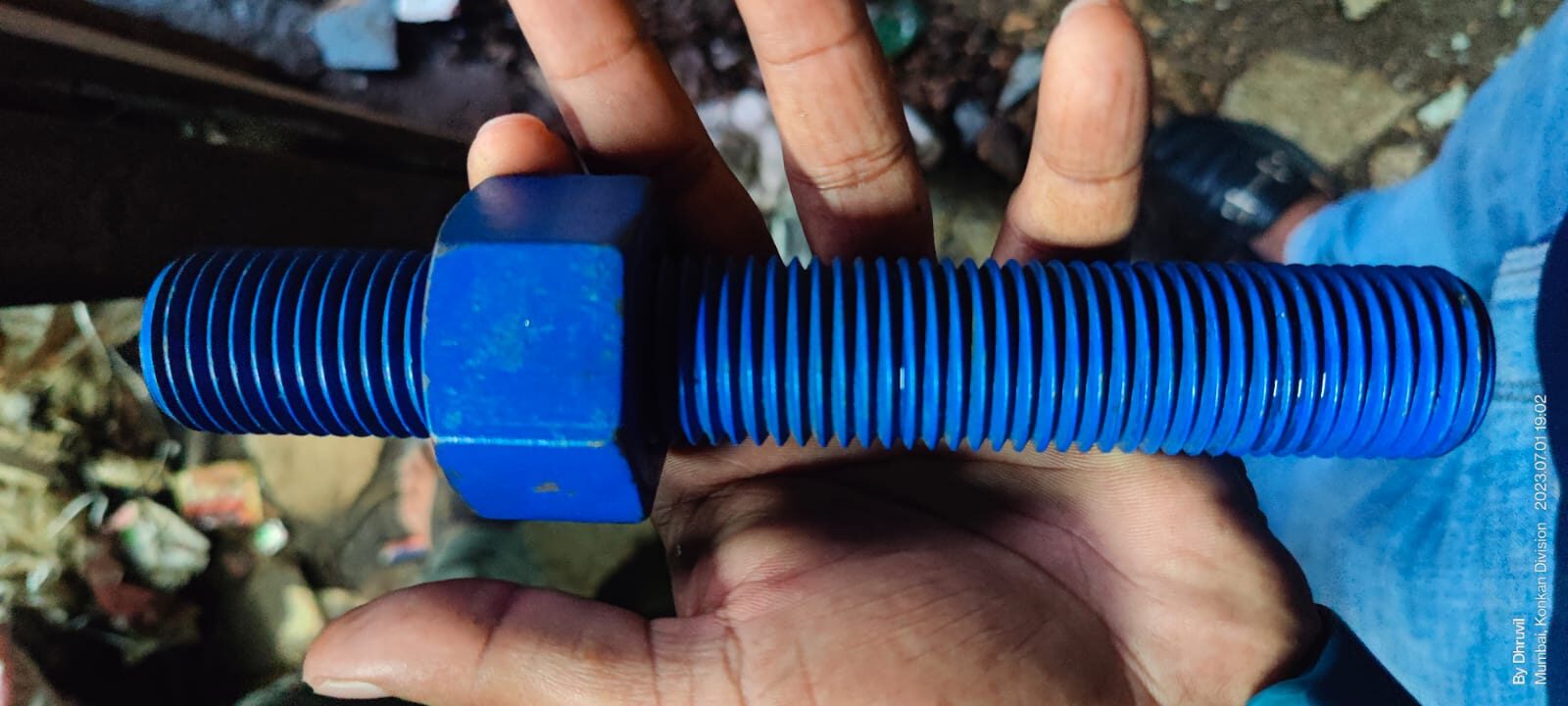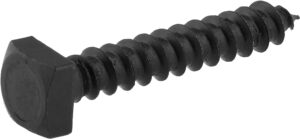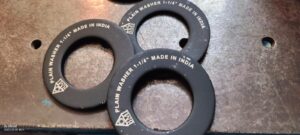What is PTFE Coated Bolts and Nuts Fasteners?
PTFE is short for Polytetrafluoroethylene, a chemical applied to common bolting materials (such as B7 stud bolts) to provide corrosion and chemical resistance. Some other common coatings for PTFE coated fasteners are Teflon and Xylan. PTFE coated studs have been used for many years within the bolting industry, especially in any application that requires corrosion resistance or in offshore applications (salt spray is hard on Grade B7 material). While PTFE coated studs (including Xylan coated studs) have corrosion-resistant properties, which are functionally understood by assemblers, the technical aspects of fluoropolymer coatings are often misunderstood.
PTFE should not be used in high-temperature applications. Fluoropolymer coatings manufacturers use temperatures in the 400F-500F as the maximum temperatures, so you typically do not see alloy steel bolts (such as B8) with PTFE coatings.


Absolutely not.
While PTFE is the same as Teflon on a chemical level, they are not applied the same way by each manufacturer. There also are several different types of base coats. Therefore, the thickness of the coating on the fastener is not a standard — and quite frankly, it’s not controlled. As a result, you must choose one manufacturer and test your k-factor for their product, and recognize that those values do not transfer to other PTFE coated stud manufacturers.
Yes!
At 30,000psi bolt load (not to be confused with 30% tensile strength), you start stripping your coating. Also, the coating will start binding. Therefore, you’ll have better accuracy and less bolt scatter (or differences in bolt loads on each bolt) by using lubricating them.
You shouldn’t.
If you were to re-use PTFE coated studs, the corrosion-resistant coating on the threads will most likely be at least somewhat degraded or damaged. Physically the bolt might still hold up to corrosion. So visually, they would still look good, which would lead someone to think that the life expectancy of the stud would be longer. But appearances can be deceiving, and you shouldn’t reuse PTFE coated studs.
Yes…to an extent.
Let’s say you have a B7 stud (ASTM A193) and 2H nuts. The application process and proprietary materials of the PTFE coating is intended to help with corrosion resistance. However, since the coating is proprietary to the manufacturer, it is hard to say how well it helps with corrosion resistance.
One way to test this is with a salt spray test with ASTM B117, which sprays the stud bolts up to 3,000 hrs while not freezing the nuts.
History of PTFE
Before PTFE coated bolts came along, the petrochemical industry used other methods of making corrosion-resistant bolting components, such as hot dip, galvanized, cadmium or zinc-plated fasteners.
Polytetrafluoroethylene (PTFE) is a synthetic fluoropolymer of tetrafluoroethylene that has numerous applications. The most well-known brand name of PTFE-based formulas is Teflon by Chemours. Chemours, a spin-off from DuPont, originally discovered the compound in 1938.
PTFE (polytetrafluoroethylene) coatings are considered non-stick coatings. Therefore you need a process to apply the “non-stick” coating to the “B7 stud material”. Therefore, the typical manufacturing process is a three-step process.
Apply a corrosion resistant base coating
Apply an adhesion coating
Apply a polytetrafluoroethylene nonstick topcoat
It’s unclear exactly when the bolting industry started using PTFE coated studs, but they have been around for a while. They tend to be used in highly corrosive environments.
Once the bolts prove themselves, people start placing them all around the plant — regardless of whether or not they should or need to.
For our full list of products that we offer check out our website here. Be sure to join the conversation in our Facebook, Instagram, Twitter, LinkedIn Group.
Each PTFE Coated Fasteners is otherwise designed based on the characteristics of the applying and additionally the pressure. Consequently, different industries use different PTFE Coated Fasteners. We also produce customized PTFE Coated Fasteners Products at our factory as per our client’s requirements. For any types of PTFE Coated Fasteners Price List Call on +91 9152160158 or drop an Email to infobmi32@gmail.com | exportbmi32@gmail.com
We Export Across the Globe
Exports in Asia Afghanistan, Armenia, Azerbaijan, Bangladesh, Bhutan, Brunei Darussalam, Cambodia, China, Georgia, Hong Kong, India, Indonesia, Japan, Kazakhstan, South Korea, Kyrgyzstan, Laos, Macao, Malaysia, Maldives, Mongolia, Myanmar (ex-Burma), Nepal, Pakistan, Phillipines, Singapore, Sri Lanka (ex-Ceilan), Taiwan, Tajikistan, Thailand, Timor Leste (West), Turkmenistan, Uzbekistan, Vietnam.
Export to Africa Burundi, Comoros, Djibouti, Eritrea, Ethiopia, Kenya, Madagascar, Malawi, Mauritius, Mayotte, Mozambique, Reunion, Rwanda, Seychelles, Somalia, Tanzania, United Republic of Uganda, Zambia, Zimbabwe, Angola, Cameroon, Central African Republic, Chad, Congo (Brazzaville), Congo, Democratic Republic of the Equatorial Guinea, Gabon, Sao Tome and Principe, Algeria, Egypt, Libyan Arab Jamahiriya, Morroco, South Sudan, Sudan, Tunisia, Western Sahara, Botswana, Lesotho, Namibia, South Africa, Swaziland, Benin, Burkina Faso, Cape Verde, Cote d’Ivoire (Ivory Coast), Gambia, Ghana, Guinea, Guinea-Bissau, Liberia, Mali, Mauritania, Niger, Nigeria, Saint Helena, Senegal, Sierra Leone, Togo.
Export to America Anguilla, Antigua and Barbuda, Aruba, Bahamas, Barbados, Bonaire, Saint Eustatius and Saba, British Virgin Islands, Cayman Islands, Cuba, Curaçao, Dominica, Dominican Republic, Grenada, Guadeloupe, Haiti, Jamaica, Martinique, Monserrat, Puerto Rico, Saint-Barthélemy, St. Kitts and Nevis, Saint Lucia, Saint Martin, Saint Vincent and the Grenadines, Sint Maarten, Trinidad and Tobago, Turks and Caicos Islands, Virgin Islands (US), Belize, Costa Rica, El Salvador, Guatemala, Honduras, Mexico, Nicaragua, Panama, Argentina, Bolivia, Brazil, Chile, Colombia, Ecuador, Falkland Islands (Malvinas), French Guiana, Guyana, Paraguay, Peru, Suriname, Uruguay, Venezuela, Bermuda, Canada, Greenland, Saint Pierre and Miquelon, United States.
Export to the Middle East Bahrain, Iraq, Iran, Israel, Jordan, Kuwait, Lebanon, Oman, Palestine, Qatar, Saudi Arabia, Syria, United Arab Emirates, Yemen.




